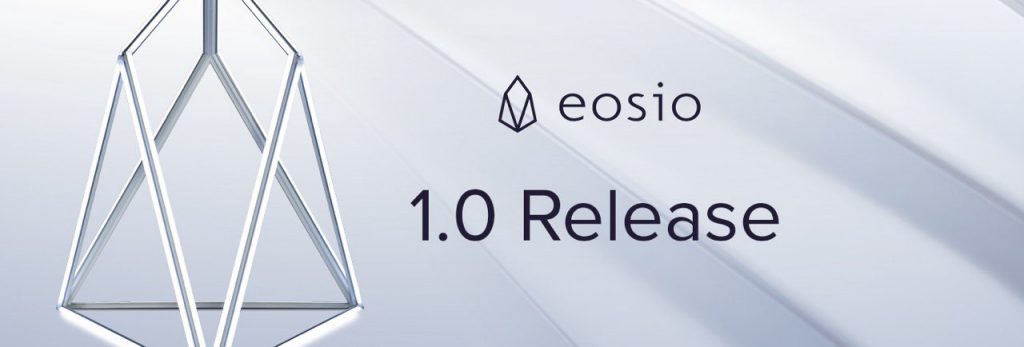EOSIO 1.0 Release

Today Block.one is pleased to release version 1.0 of our open source EOSIO blockchain software. This software enables businesses to rapidly build and deploy high-performance and high-security blockchain-based applications.
EOSIO is designed to include:
- Free Rate Limited Transactions
- Low Latency Block confirmation (0.5 seconds)
- Low-overhead Byzantine Fault Tolerant Finality
- Optional high-overhead, low-latency BFT finality
- Smart contract platform powered by Web Assembly
- Designed for Sparse Header Light Client Validation
- Scheduled Recurring Transactions
- Time Delay Security
- Hierarchical Role Based Permissions
- Support for Biometric Hardware Secured Keys (e.g. Apple Secure Enclave)
- Parallel Execution of Context Free Validation Logic
- Inter Blockchain Communication
EOSIO allows developers to write business logic that is compatible with consensus algorithms that demand deterministic execution. Your user base can interface with this business logic using the secure public key infrastructure, bringing blockchain-level security, accountability, and auditability to your business. Business logic is easily updated according to the governance structures of your organization.
EOSIO is designed to operate in environments without any tokens where system administrators allocate potentially unlimited resource quotas to users. Alternatively smart contracts can allocate resource quotas by other means, such as token staking, market fees, or voting. This makes EOSIO ideal for both enterprise and community-driven blockchains.
Depending upon your use case, EOSIO can be configured to use one of two different Web Assembly engines, Binaryen and WAVM. A single EOSIO blockchain can support up to 1,000 TPS and future versions of EOSIO will provide the tools necessary to simplify inter-blockchain communication, allowing your business to scale horizontally.
EOSIO is released under the open source MIT license and is offered “AS IS” without warranty of any kind, express or implied. Any security provided by the EOSIO software depends in part on how it is used, configured, and deployed. EOSIO is built upon many third-party libraries such as Binaryen (Apache License) and WAVM (BSD 3-clause) which are also provided “AS IS” without warranty of any kind. Without limiting the generality of the foregoing, Block.one makes no representation or guarantee that EOSIO or any third-party libraries will perform as intended or will be free of errors, bugs or faulty code. Both may fail in large or small ways that could completely or partially limit functionality or compromise computer systems. If you use or implement EOSIO, you do so at your own risk. In no event will Block.one be liable to any party for any damages whatsoever, even if it had been advised of the possibility of damage.
Block.one is neither launching nor operating any initial public blockchains based upon the EOSIO software. This release refers only to version 1.0 of our open source software. We caution those who wish to use blockchains built on EOSIO to carefully vet the companies and organizations launching blockchains based on EOSIO before disclosing any private keys to their derivative software.
*Update: we have identified and patched a fix that will need a software protocol upgrade. We have tagged this upgrade as EOSIO Version 1.0.3, found here: https://github.com/EOSIO/eos/releases/tag/v1.0.3
The EOSIO software is available on GitHub. If you are a developer, and are interested in getting started, please visit the EOSIO Developer Portal at https://developers.eos.io
All product and company names are trademarks™ or registered® trademarks of their respective holders. Use of them does not imply any affiliation with or endorsement by them.
Important Note: All material is provided subject to this important notice and you must familiarize yourself with its terms. The notice contains important information, limitations, and restrictions relating to our software, publications, trademarks, third-party resources and forward-looking statements. By accessing any of our material, you accept and agree to the terms of the notice.
Originally published at block.one on June 1, 2018.